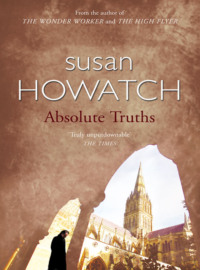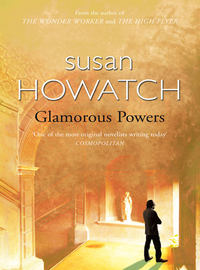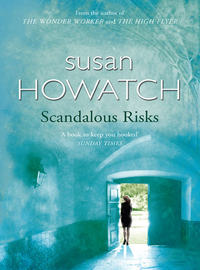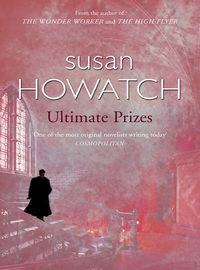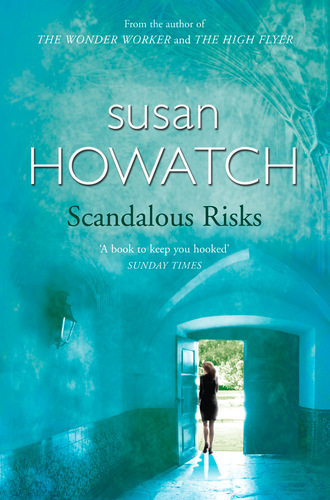
Полная версия
Scandalous Risks
Eddie the masochist embraced this challenge with zest. Having been trained at the Starbridge Theological College in its Ango-Catholic heyday under Nick’s father Jonathan Darrow, he had no hesitation in resorting to the most florid ritualism (traditionally popular among the religious members of the working classes), and before long the parish was rising from the dead. Consolidating his success Eddie slaved on, organising clubs, running Bible classes, raising money. The parishioners, who had at first regarded him with suspicion, came to the conclusion they preferred the attentions of a foreigner, even a German foreigner, to the ministrations of some toffee-nosed English gentleman who had been educated at a public school. (The plebs are such dreadful snobs.) Eddie flourished. The parish boomed. The Bishop was both amazed and admiring. When a residentiary canonry at last fell vacant at the Cathedral, he had no objection to Aysgarth’s suggestion that Eddie’s talents should now be employed in a more elevated sphere, and so Eddie became a canon, working hard at his Chapter duties and beavering away on various diocesan committees. He had arrived. Franz Eduard Hoffenberg, that pathetic young German prisoner of war, had been transformed into a pillar of the English ecclesiastical establishment. All he now had to do was live happily ever after.
Of course being Eddie he remained gloomy but it was impossible for him to dispute that his life was now very comfortable. He had a snug little house in the Close, a surrogate family, the Aysgarths, a reasonable income and a pleasant amount of prestige. No one was surprised when he made a success of the canonry. Discarding without difficulty the Anglo-Catholic trappings which he had used to conquer Langley Bottom, he fitted easily into the Cathedral’s middle-of-the-road pattern of worship. In theological matters he was more conservative than his hero, but like Aysgarth he was an idealist prone to talk soppily about the brotherhood of man when he had downed a couple of drinks. His odd, ungainly, pear-shaped figure was always carefully dressed. He observed English customs rigorously, even declaring how devoted he was to Walls’ pork sausages and Dickens when we all knew he must be hankering for bratwürst and Goethe. Priding himself on his mastery of slang he spoke English almost flawlessly except when he began to ponder on the mystery of suffering. Those were the occasions when I thought he was a joke. Otherwise I just thought he was a thundering bore.
As we encountered each other outside the Deanery that afternoon I inwardly recoiled but nevertheless achieved a passable smile.
‘Hi Eddie,’ I said and automatically added: ‘How are you?’ but that was a mistake. One never asked Eddie how he was. He was all too likely to reply in excruciating detail.
‘Well, as a matter of fact my back’s playing me up again,’ he began, ‘but I’ve found this wonderful osteopath who –’
‘Super! Is the Dean in?’
‘Yes, but we’re just off to evensong. I say, Venetia, I had no idea you were about to visit the Aysgarths!’
‘Ah well, ignorance is bliss, as the saying goes …’ I was trying to edge past him but his bulk was blocking the way. The Deanery, a rambling medieval concoction enhanced by Georgian meddling, had no formal drive up to the front door; instead a pebbled lane at the side of the house led to the old stables, while a flagstone path flanked with lavender bushes led through the front garden. Eddie was planted on the flagstones and I was trying to slink past the lavender.
‘Are you here for long?’ Eddie was enquiring, apparently unaware of my attempts at circumnavigation.
‘No, I’m heading for Oxford.’
The front door swung wide. ‘Venetia!’ cried Aysgarth in delight. ‘What a marvellous surprise!’
‘Mr Dean!’ I said as my spirits soared, and firmly pushing my way past Eddie I clasped Aysgarth’s outstretched hand.
VI
‘Must see you!’ I hissed. ‘Top secret!’
His bright blue eyes at once became brighter and bluer. He loved being conspiratorial with young women. ‘You go on ahead,’ he called to Eddie. ‘I’ll catch you up.’
‘We’re late already, Stephen –’
‘I’ll run all the way to the vestry!’ said Aysgarth lightly, and with reluctance Eddie sloped off through the front gate.
Wasting no time I said: ‘I’ve left home and I need advice. Any chance of a quick word without half the Close breathing down our necks?’
‘Meet me in the cloisters after evensong.’
‘Wonderful! Thanks so much … In that case I might as well go to evensong, mightn’t I?’
‘Why not?’ said the Dean amused. ‘It would help to pass the time!’
As it occurred to me that Dr Ashworth would have responded far more coolly to my lukewarm attitude to worship I exclaimed: ‘How glad I am you’re not the Bishop! I’ve just been hobnobbing with him at the South Canonry.’
‘How on earth did you end up there?’
‘I got mixed up with Charley on the train. Mr Dean, what do you think of Honest to God?’
‘Superb! Quite splendid! A breath of fresh air sweeping through the Church of England!’
‘Yes, I thought it probably was. The Bishop’s decided it’s absolutely the bottom.’
‘The trouble with Charles,’ said Aysgarth as we left the garden, crossed Canonry Drive and entered the churchyard of the Cathedral, ‘is that he was trained as a theologian. Such a pity! A theologian’s approach to religion is nearly always much too cerebral and he inevitably becomes cut off from ordinary believers.’
‘But isn’t this book supposed to be bad for ordinary believers?’
‘Rubbish! It’s the best thing that’s happened to them for years. Robinson’s realised that the ordinary believers are waiting for a new comprehensible interpretation of Christianity which will relate to the lives they’re living right now in the 1960s – they’re not waiting for cerebral restatements by theologians in their dead, dry, alienating academic language!’
‘But if the book’s too radical –’
‘Nothing could be too radical! Let’s have this New Reformation Robinson talks about! Let’s have this New Morality! Now that we’re finally emerging from the long shadow of the war and shedding the millstone of the Empire, we need to celebrate our psychological liberation by making everything new – so why not start by flinging religion into the melting-pot, as Robinson suggests, and recasting our beliefs in a bold, creative dynamic style that’s thoroughly attuned to our day and age?’
I began to feel excited – insofar as one can ever feel excited about a subject such as theology. I was, in fact, very much in the mood for revolution and I deeply fancied the thought of an iconoclastic assault on any part of the established order. ‘Long live Bishop John Robinson!’ I declared, making Aysgarth laugh, and we quickened our pace across the sward to the Cathedral.
VII
At the north porch we parted, Aysgarth walking on to the Dean’s door, the special entrance for the clergy, and I wandering through the porch into the nave. A sidesman showed me to a seat in the choir. This was not an unusual favour to bestow prior to a weekday service when few laymen would be present, but nevertheless it made me feel privileged.
The Cathedral was quiet. By that time the tourists had left and it had reverted to the inhabitants of Starbridge, most of whom preferred to admire it loyally from afar. However the congregation did eventually mount to thirty. I sat gazing up at the vaulted ceiling and trying to think noble thoughts, but I was pondering on Mrs Ashworth’s advice about eye make-up when the organ marked the beginning of the service.
I liked the weekday choral evensong. It required no effort apart from kneeling down and standing up at regular intervals, and there was no sermon either to stretch the brain or induce rigor mortis. The choirboys sang in their unearthly voices; the vicars-choral bayed with authority; the vergers marched around providing touches of ceremonial; the clergy lolled meditatively in their stalls. I thought it was all so luxuriously restful, like a hot bath garnished with an expensive perfume, and as I watched the sun slant through the great west window I thought how clever God was to have invented the Church of England, that national monument dedicated to purveying religion in such an exquisitely civilised form.
Aysgarth was looking untidy as usual. His shop-soiled white hair always seemed to need trimming. Wearing a dignified expression he rose to his feet to read the lessons, while in the intervals Eddie, crammed into his canon’s stall at the other end of the choir, intoned the versicles and recited the prayers. I was always surprised by how well Eddie did this, but no doubt Aysgarth had trained him not to sound as if he was fathoms deep in depression. Aysgarth himself read the lessons beautifully in his deep, resonant voice. In fact I was so busy thinking how well he read that I forgot to listen to what he was reading. Appalled by my lack of concentration I was on the point of making a new attempt to focus my mind on the service when I saw Nick Darrow staring at me from the opposite side of the choir. I supposed I had been too busy thinking about eye make-up to notice him earlier.
As soon as our glances met he looked away but I went on watching him and wondering if he was destined to be my lucky mascot. But mascot seemed the wrong word to describe someone like Nick. It was too cosy, too banal. For Nick Darrow I needed a word which implied magic, extraordinary happenings, paranormal phenomena –
‘Ah-ah-ah-men!’ sang the choir, winding up the service.
The organ trilled and fell silent for a moment before embarking on a fugue. Everyone hauled themselves to their feet. The choir tripped out jauntily, mission accomplished, and the clergy followed, looking inscrutable. Aysgarth never once glanced in my direction.
Wandering towards the transept I found Nick had fallen into step beside me.
‘Ah!’ I said, finally grasping the word I wanted. ‘It’s my Talisman! I shouldn’t be surprised to see you again, should I, but why are you on your own?’
‘Charley’s busy with his father.’
‘Mrs Ashworth was telling me about yours. I hear he’s very old.’
‘Yes, but he’s okay.’
‘How old is “old” exactly?’
‘He’ll be eighty-three in May. But he’s okay.’
‘Compos mentis?’
‘Yep.’
‘Super! I often think my father’s mad as a hatter. Is your father able to do much?’
‘Yep. He prays.’
‘Ah. All the time?’
‘No, he does see people occasionally.’
‘He sounds like a hermit!’
‘He is a hermit. But he doesn’t mind me being with him because we don’t have to talk.’
I suddenly realised I was gazing at him as if he were a creature from another planet. ‘How restful!’ I said, not sure what to say. ‘My father’s the very reverse of a silent hermit!’
‘He might become one later. My father only became a recluse after my mother died.’ He turned abruptly towards the nave. ‘So long.’
‘When are we due to meet again?’
He shrugged and walked away.
I gazed after him in fascination. Then heaving open the massive door in the south transept I passed at last into the cloisters.
VIII
In the centre of the quadrangle lay the lawn beneath which in previous centuries the eminent men of Starbridge had been buried, and overshadowing this ancient graveyard an enormous cedar tree towered above the roof of the colonnade. There was a faint breeze. The cedar’s dark upper branches were stirring against the pale, limpid sky.
I was still gazing at this tranquil scene when the door creaked behind me and Aysgarth slipped out of the transept. Unlike Dr Ashworth he had entirely rejected the archaic uniform of a senior churchman, but perhaps that was less because he wanted to be modern than because his thickset figure was unsuited to fancy dress. On that evening he was wearing a black suit, slightly crumpled, and the black clerical ‘stock’ which was worn over an ordinary shirt and secured by ties at the back beneath the jacket. He had no pectoral cross; he belonged to the generation of Protestant churchmen who thought such papist adornment pardonable only when adopted by bishops. His hair, perhaps disarranged when he had removed his surplice after the service, swooped wildly over his ears in undisciplined wings and bumped against the back of his stiff white clerical collar. He looked like an eccentric scientist who has just made an important discovery.
‘Let’s go and sit on Lady Mary Calthrop-Ponsonby!’ he suggested blithely as I moved to meet him.
‘I beg your pardon, Mr Dean?’
With a laugh he led the way to a wooden seat on the northwestern corner of the lawn, and as I drew closer I saw that the back of the seat bore a brass plaque inscribed: ‘In memory of Lady Mary Calthrop-Ponsonby, 12th February 1857–8th November 1941. “FIGHT THE GOOD FIGHT WITH ALL THY MIGHT.”’
‘Three cheers for Lady Mary,’ I said as we sat down, and told him how I had decided to abandon London in search of a new life. ‘… and I’ve now reached the point where I’m trying to decide what to do next,’ I concluded. ‘Mrs Ashworth thinks I should go to Oxford, park myself on Christian and Katie and wangle my way into their set, but I’m not sure I have the nerve to exploit them so brazenly.’
‘I don’t see why you shouldn’t stay with Christian and Katie for a few days while you decide if Oxford has anything to offer you, but I can’t quite see why Lyle is pointing you in that direction.’
‘She thinks I’d enjoy mixing with an intellectual jeunesse dorée.’
‘On the contrary I think you’d soon be bored stiff with all those academics.’
‘Would I? Are you sure? I just feel that if only I could get in with the right set –’
‘In my experience right sets tend to be much too fast.’
‘When one’s been crawling along like a tortoise, Mr Dean, the idea of pace begins to seem attractive.’
He laughed. ‘Was London really that bad?’
‘Yes, it really was. I’ve been a failure there. Don’t just tell me to go back and try again.’
‘Very well, let’s be more imaginative. This could be a great opportunity for you, Venetia! A fresh start is always a great opportunity, but you should remember that happiness isn’t ultimately dependent on getting in with the right set; it’s about serving God by using your God-given gifts in the best possible way.’
‘I only seem to have a God-given gift for drifting in and out of boring jobs.’
‘It’s obvious that you haven’t yet found your métier, and in my opinion pondering on the right métier, not choosing which city to live in, should actually be your number one concern at the moment. You need to escape to somewhere very quiet and very remote for a few days so that you can ponder in peace and see your situation in perspective … Come on holiday with me after Easter!’
I nearly fell off Lady Mary. ‘What a breathtaking suggestion!’
He laughed again before adding: ‘Dido’s not coming but Eddie’s accompanying me and Primrose is joining us twenty-four hours later. Come up on the Wednesday after Easter with Primrose!’
‘Where’s “up”?’
‘The Outer Hebrides.’
‘IS there an Outer Hebrides?’
‘Apparently. The new Earl of Starmouth has very kindly lent me his hunting-lodge on Harris.’
‘Don’t Elizabeth and Pip want to go?’
‘Dido’s taking them to her sister in Leicestershire where they’ll ride horses with her and be blissfully happy.’
‘Chacun à son goût,’ I said. ‘Personally I’d rather live it up in a Caledonian Shangri-La.’
‘My sentiments exactly!’ said Aysgarth, and as he smiled I suddenly wondered if he, like me, was seizing the chance to escape from intractable private problems.
FOUR
‘What is most real to you? What matters most for you? Is it money and what money can buy? I doubt it, deep down. For you know that you can’t take it with you”. And seldom does it bring real happiness. Is it love? That’s a good deal nearer, because it has to do with persons, not things.’
JOHN A. T. ROBINSON
Suffragan Bishop of Woolwich 1559–1969
Writing about Honest to God in the Sunday Mirror, 7th April 1963.
I
After staying the night in Primrose’s flat, I caught a train the next morning to my country home at Flaxton Pauncefoot, a village which lay ten miles from the port of Starmouth in the south of the diocese. Here I sorted out some appropriate clothes for the holiday, selected a couple of books and dumped my current stock of dirty laundry on the housekeeper who returned it, faultlessly washed and ironed, that evening. Nowadays there are very few advantages in being a member of the aristocracy, but at least one never has to worry about laundries. Nor does one have to waste time shopping for food or sweating over a hot stove. I said to the housekeeper: ‘I’d like baked beans on toast with a poached egg on top, and tell Pardoe to look out a half-bottle of that nice St Julien, the one with the picture of the purple vineyard on it.’ That solved the problem of dinner.
Afterwards, greatly fortified, I phoned my mother to inform her I would be heading for the Hebrides, retired to the blue drawing-room where the television set lurked behind a fire-screen, and watched the latest episode of the comedy series Down at the Surgery in which two doctors have their virtue constantly assailed by a stream of diverse nymphomaniacs. The elder doctor was played by Martin Darrow with a professional deftness which prompted me to giggle so hard that I dropped cigarette ash all over the floor. He was far better looking than his young half-brother, but nevertheless I was conscious of the strong resemblance between them. I wondered idly what their father, the ancient hermit, thought of his elder son’s career as a television star.
The next morning I extracted my red MG from the stables, heaved my bags into the back and returned to Primrose’s flat. I had remembered it was Sunday but somehow I managed to arrive too late to attend matins, so taking advantage of the spring sunshine I lounged on the seat in the Deanery’s garden as I waited for everyone to return from the Cathedral. Unfortunately Primrose and the Dean stayed on for the sung Communion service. I should have remembered that possibility and removed myself, but I was still lolling in the sunshine when Dido turned up to torpedo me.
‘So there you are, Venetia! Primrose was under the impression you’d be back in time for matins. I do think you might have telephoned to say you’d be late, but then that’s the upper classes, isn’t it, my dear, always expecting the entire world to fall into step beside them, and personally I’ve always been devoutly thankful that I was merely the daughter of a self-made Scottish millionaire and irredeemably nouveau riche because at least I was taught consideration for others from the cradle. Now –’ She paused for breath as she parked herself purposefully on the bench beside me ‘– I’m so glad I’ve got the chance for a word alone with you, because I think it’s time that an intelligent, honest older woman – and as you know, my dear, I always pride myself on my candour – I think it’s time,’ said Dido, without even pausing for breath after this parenthesis, ‘that I gave you a piece of sensible and I hope not unaffectionate advice – because of course I’m very fond of you, Venetia, just as Stephen is, although I do see all your little faults and foibles rather more clearly than he does, because darling Stephen’s so noble that he always sees the best in everyone, whereas I, being a realist – and I’m always being complimented on my realism – I, being a realist,’ said Dido, battling her way out of the jungle of this monstrous sentence, ‘take a much more pessimistic view of humanity, and having been a rich young girl myself I know all about the pitfalls waiting to ensnare rich young girls who drift around without any proper direction – which brings me to what I want to say.’
I raised an eyebrow and looked hopeful.
‘What you have to do, my dear, is not simply to drift hither and thither like a piece of flotsam – or is it jetsam? – on the sea of life while you dabble in antiques and publishing or sidle off on little holidays to the Hebrides with an elderly clergyman who really should have known better than to invite you – although, of course, I do understand that darling Stephen, so soft-hearted, only wanted to be kind – but I’m afraid he didn’t stop to think, did he, that suggesting a holiday was actually only offering you a way of escaping from your problems, and what you really have to do, Venetia my dear, is not to escape from your problems but to face them. To put matters absolutely candidly, if you can’t find a husband you must find a suitably worthy cause to which you can devote your energies, and quite honestly – and I know it’s unfashionable to say this, but since I always believe in calling a spade a spade –’
I raised the other eyebrow and looked even more hopeful.
‘– I think you need to find God. I began my search for God when I was about your age – it was after my favourite sister died – and once Pd started I was always so cross with myself that I’d never started before because religion’s so absolutely fascinating and I can’t understand why it’s not taught properly in schools, especially when they go to such lengths to teach useless things like algebra and hockey. Anyway, once I’d started looking for God I met Stephen and lived happily ever after, and I think the same sort of thing might happen to you if only you could stop being so self-centred. As it happens I know the most wonderful clergyman in London who specialises in spiritual direction, and I’m quite certain that if I were to ring him up and tell him about you –’
‘How terribly kind of you, Mrs Aysgarth, but I’m afraid I’ve absolutely had it with London.’
‘Oh, that won’t last, you’ll go back, you’re a London person. Now my dear, I do hope you’re not thinking that darling Stephen will give you spiritual direction in the Hebrides, because Stephen’s not at all spiritual on holiday, he just likes to sit around eating and drinking and reading detective stories, and I honestly think he’d be most put out if you started chatting to him about God. Anyway, Stephen really can’t start giving spiritual direction to young girls, even here in Starbridge, because he’s much too busy running the Cathedral and keeping the Chapter from murdering each other, and even if he wasn’t much too busy he prefers to exercise his pastoral skills these days among men – and usually German men, as Eddie Hoffenberg will be the first to tell you. And talking of Eddie, I do think you might be kinder to him, he’s such a nice man and he’s had such awful tragedies in his life and he just doesn’t deserve to have you and Primrose poking fun at him behind his back. God only knows what the two of you will get up to in the Hebrides – I can just see you egging each other on and smirking in corners—and in fact to be quite candid and to cut a long story short, I think this holiday is a thoroughly bad idea for all concerned. Why don’t you and Primrose run off to Cornwall and leave those two clergymen to recharge their spiritual batteries in peace?’
‘I don’t think Primrose would care for that idea at all, Mrs Aysgarth.’
‘Oh, Primrose! If that girl were to spend a little less time doting on her father and a little more time being nice to Maurice Tait her life would be vastly improved – and so, God knows, would mine! In fact in my opinion you’d be doing us all the biggest possible favour, Venetia my dear, if you lured Primrose away to – no, not Cornwall, too unoriginal, how about the French Riviera? Take her to your sister’s villa at Juan-les-Pins!’


